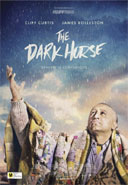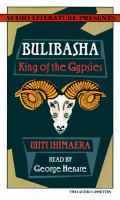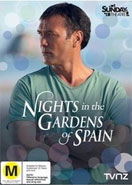New Zealand recently lost a prominent Māori leader when historian, academic and champion of the Māori language and customs Dr Ranginui Walker died aged 83 in Auckland on the 28th February this year.
There is an obituary for Dr Walker displayed by the biographies in the Māori Collection on the 2nd floor at the Central library. A screen showing video footage of some of his interviews and speeches is also situated in the Māori Collection.
A highly esteemed academic who dedicated much of his life to documenting historical events of significance from a uniquely Māori perspective. ‘Ka whawhai tonu mātou: Struggle without end’ is his most well known book and documents two centuries of the Māori struggle for justice, equality and self-determination.
 Ka whawhai tonu mātou = Struggle without end / Ranginui Walker. This is a revised edition of Dr Ranginui Walker’s best-selling history of Aotearoa, New Zealand, from a Māori perspective. Since the mid-nineteenth century, Māori have been involved in an endless struggle for justice, equality and self-determination. In this book Dr Walker provides a uniquely Māori view, not only of the events of the past two centuries but beyond to the very origins of Māori people. In this updated edition Dr Walker has added new chapters covering the years from 1990, the flowering of the Māori culture and the growth of Māori political and economic power. Recent issues such as the foreshore and seabed legislation, the hikoi and Don Brash’s Orewa speech are discussed.
Ka whawhai tonu mātou = Struggle without end / Ranginui Walker. This is a revised edition of Dr Ranginui Walker’s best-selling history of Aotearoa, New Zealand, from a Māori perspective. Since the mid-nineteenth century, Māori have been involved in an endless struggle for justice, equality and self-determination. In this book Dr Walker provides a uniquely Māori view, not only of the events of the past two centuries but beyond to the very origins of Māori people. In this updated edition Dr Walker has added new chapters covering the years from 1990, the flowering of the Māori culture and the growth of Māori political and economic power. Recent issues such as the foreshore and seabed legislation, the hikoi and Don Brash’s Orewa speech are discussed.
Dr Walker was born on 1 March 1932 into a farming family belonging to the Whakatōhea iwi of Opotiki. He was educated at St Peter’s Māori College in Auckland and trained and worked as a primary school teacher for 10 years. He then studied for
a Bachelor of Arts degree at Auckland University which he completed in 1962. He started lecturing at Auckland University in 1967 and this was the start of his academic career specialising in anthropology, education, and Māori studies. He took his doctorate in 1970, eventually becoming a full professor and head of the department of Māori studies. He retired from the university in 1998, having served at its first Māori pro-vice chancellor.
Dr Walker was a member of the New Zealand Māori Council and a foundation member of the World Council of Indigenous People, secretary and later chairman of the Auckland District Māori Council. In 2001, Ranginui Walker was made a Distinguished Companion of the New Zealand Order of Merit and he was appointed to the Waitangi Tribunal in 2003. He received a number of awards for his literary works, which included a Prime Minister’s Literary Award and a Distinguished Alumni Award from the University of Auckland.
Auckland University Vice-Chancellor Stuart McCutcheon said Dr Walker would be recognised as one of the greatest Māori academics of his time, and called him an interpreter between Māori and Pakeha.
“He worked between those worlds and was committed to not only to Māori in this country but to the country as a whole and to its furtherance through education, so he was certainly a person who could build bridges, who could interpret between different paths and aspects of New Zealand.”
Ngāpuhi Leader Hone Sadler shared Dr Walker’s love of education.
“His tongue was sharp as a sword and he didn’t mind using it because if there was something good or right that would come out of the conversation, he was prepared he wasn’t someone that would hold back,” said Mr Sadler.
You can read more about his life in the Paul Spoonley biographical Mata toa : the life and times of Ranginui Walker.
 Mata toa : the life and times of Ranginui Walker / Paul Spoonley.
Mata toa : the life and times of Ranginui Walker / Paul Spoonley.
“Author, biographer, historian, academic, commentator, rangatira, activist, leaders… Professor Ranginui Walker has been in the headlines for decades, ever since the beginnings of the Māori political and cultural renaissance in the 1970s. Walker is one of the few Māori leaders to assume the responsibility of crossing the cultural divide and making the Māori world intelligible to Pākehā. Articulate and forthright, he has a major influence on how Pākehā view Māori in the twenty-first century. He has also led many of the debates and developments among Māoridom. His numerous books include the bestselling KA WHAWHAI TONU MATOU: STRUGGLE WITHOUT END and HE TIPUA, his highly acclaimed biography of Sir Apirana Ngata. Paul Spoonley’s fascinating book is in part a biography of one of New Zealand’s most significant social commentators and also a social/political commentary of the huge changes in the position of Māori in modern New Zealand.” (Syndetics review)
Other books written by Dr Ranginui Walker include:
 Opotiki-Mai-Tawhiti : capital of Whakatohea / Walker, Ranginui.
Opotiki-Mai-Tawhiti : capital of Whakatohea / Walker, Ranginui.
“This is a tribal history of Māori scholar Ranginui Walker’s own iwi, Whakatohea of Opotiki, with the emphasis on the epic events of the nineteenth century and the tribe’s subsequent struggle for social justice.” (Syndetics summary)
 Tohunga whakairo : Paki Harrison : the story of a master carver / Ranginui Walker.
Tohunga whakairo : Paki Harrison : the story of a master carver / Ranginui Walker.
“Paki Harrison is widely regarded as New Zealand’s greatest living master carver, a man with a huge reputation as a leading tohunga of the art form. He possesses immense knowledge about the traditional arts of the carver, extending way beyond the actual physical arts to include its most ancient aspects – the symbolism contained in Māori art, to its role in transmitting old tribal history. Few know more about the symbolism of the waka taua (war canoe), whare whakairo (carved meeting houses) and kōwhaiwhai patterns. This major biography by Ranginui Walker traces Paki Harrison’s life and work, from his privileged upbringing in the Ngāti Porou household of his grandmother, where he was singled out for special training.” (Adapted from publisher description)
Nga pepa a Ranginui = The Walker Papers / Ranginui Walker.
“Eleven of Dr Walker’s papers are printed. They deal with general issues, such as Taha Māori or tino rangatiratanga, and with specific topical issues such as the fiscal envelope or the fisheries deal. There is a section of photographs in the centre. Dr Walker has written several books, including ‘Struggle without end’, the history of Aotearoa from a Māori perspective.” (Syndetics summary)
Nga tau tohetohe = years of anger / Ranginui Walker.
“A selection of Kōrero columns from the New Zealand listener, edited by Jacqueline Amoamo.” (Syndetics summary)
 The dead lands / a Matthew Metcalfe production ; a Toa Fraser film.
The dead lands / a Matthew Metcalfe production ; a Toa Fraser film. The dark horse / Four Knights Film in association with The New Zealand Film Commission [and six others] present ; a film by James Napier Robertson.
The dark horse / Four Knights Film in association with The New Zealand Film Commission [and six others] present ; a film by James Napier Robertson.









